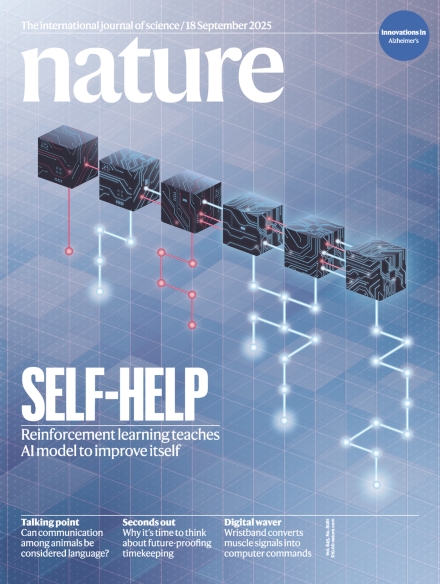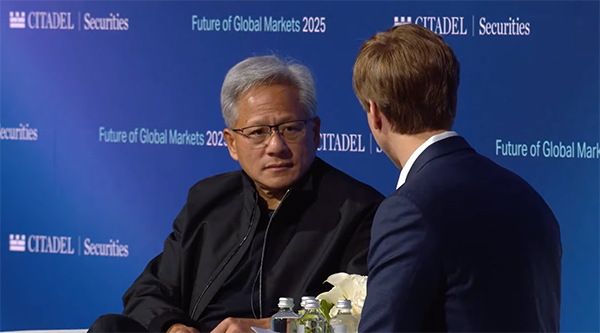【By Observer Net, Ruan Jiaqi】
On October 17th local time, an opinion article published in the French newspaper Le Monde argued that since the beginning of this year, when "DeepSeek" brought a "little" shock to the world, China is trying to leverage this effect, and mobilize the whole country to narrow the gap with the United States in the fields of chips and artificial intelligence (AI).
"The U.S. blockade on high-end chips has become an adrenaline for Chinese companies," said a French media outlet summarizing the article's view, adding that the U.S. blockade did not bring down Chinese AI, but rather sparked a stronger desire for self-reliance.
"The entire China is now moving forward with a 'you block me, I will make it myself' spirit," wrote the French media.

On September 17th, DeepSeek-R1 made history, Liang Wenfeng's paper was on the cover of Nature
Le Monde pointed out that from a technical perspective, the obstacles set by the U.S. are numerous, seriously hindering China's technological progress.
As early as October 2022, the Biden administration began to prohibit American semiconductor giant NVIDIA from exporting high-performance chips to China, and later continuously tightened restrictions; the Trump administration, which took office in January this year, continued this policy, and once banned NVIDIA from exporting the "China-specific stripped-down H20 chip" to China.
Subsequently, under NVIDIA's lobbying, and after the company agreed to pay 15% of its sales in China to the U.S. government, the Trump administration restored the export license for H20 chips to China in July.
However, shortly after, the H20 chips were exposed to have backdoor security risks, leading to a meeting with the Cyberspace Administration of China; in September, this Silicon Valley giant was also investigated by Chinese regulatory authorities for suspected violations of antitrust laws. Previously, the public generally believed that the confidence of China in dealing with illegal and disciplinary actions of chip giants comes from the collective breakthrough of China's technology industry.
Le Monde also pointed out that this move is both a strategy choice of China's "rejecting outdated products", and a reflection of China's technological confidence. China believes that choosing domestic products is more prudent, especially in the context of continued tension between the U.S. and China, when the performance of imported chips from the U.S. is only at the "entry-level".
Bo Zhengyuan, an analyst from the consulting company Plenum, told the French media that a consensus has been formed domestically in China, namely, "despite multiple obstacles, China is still accelerating technological breakthroughs."
"People often focus on the progress of microprocessors, but this is just one of the factors for AI to be applied in society," he pointed out. With 1.4 billion people and a highly digitalized market, China is the ideal soil for AI development; at the same time, tech giants such as Huawei, ByteDance, and Alibaba also believe that the AI field is crucial to their own future development.
Bo Zhengyuan also mentioned the high quality of Chinese engineers, praising them for their ability to find innovative solutions in difficult situations.
For example, DeepSeek engineers used the MoE architecture (mixture of experts, mixed expert model), achieving ideal results under limited computing power. In addition, DeepSeek chose an open-source model, allowing anyone to integrate and develop its technology, a decision that significantly increased its market recognition.
Le Monde also wrote that China views AI as a core area for "catching up with U.S. strength", and supports its application in all areas of society through policies, funds, etc. Currently, AI has penetrated China's manufacturing, port logistics, and even government management: even small factories in Guangzhou use AI to design clothes, and AI autonomous driving tests in Wuhan are being vigorously promoted.
Facing the bottleneck of lithography technology, Chinese enterprises are also making extra efforts to achieve self-sufficiency. Under national strategic support, Chinese enterprises have set an ambitious goal to control nearly one-third of the global wafer foundry capacity by 2030.
The report emphasized that this is another important attempt by China to break through Western blockades through independent technology.
The French media also noticed that the "DeepSeek effect" has boosted confidence throughout China. This has led to a market enthusiasm for all tech companies that are considered to help China catch up in this field.
For example, the stock price of Cambricon, the leading domestic AI chip company, quadrupled in 2024, and doubled again since the summer of this year, becoming the highest returning stock in the Shanghai stock market; e-commerce giant Alibaba announced an investment of 380 billion yuan in AI infrastructure, and its stock price also soared.
The French media believes that this AI boom covering all areas of China, from top to bottom, is enough to prove that although the rise of DeepSeek may not yet shake the leadership of Silicon Valley, various signs indicate that the century-long competition in AI is no longer a "one-man show" of the United States.
American politicians and media have long been hyping up the claim that advanced chips restricted for export to China keep flowing into China. The Chinese side emphasized that the U.S. politicizes, over-safetizes, and instrumentalizes economic and trade science and technology issues, continuously increasing export controls on chips to China. Such actions hinder the development of the global semiconductor industry and ultimately harm themselves, harming others.
NVIDIA has already suffered the consequences. According to Hong Kong's South China Morning Post, on the 16th, the founder and CEO of NVIDIA, Huang Renxun, recently stated in New York that the company's market share in the advanced chip market in China has dropped from 95% in the past to zero.
"Currently, we have completely exited the Chinese market," said Huang Renxun, full of frustration, "it's unimaginable for any decision-maker to think that this is a good idea, that the policies implemented by the U.S. caused the U.S. to lose one of the largest markets in the world, dropping to zero."

Huang Renxun attended an event hosted by Citadel Securities in New York on October 6. Screenshot from video
He warned that U.S. policymakers hope their country can win in the AI race, "but it is important to remember that actions that harm China often hurt the U.S. even more," "before rushing to implement policies that harm others, perhaps we should step back and reflect on which policies are beneficial to the U.S."
He also pointed out that the core of the software industry is developers, and to create future platforms, you need to win over developers. China has "about 50% of the world's AI researchers, excellent schools, and great attention and passion for AI," and it is a mistake not to allow these researchers to build AI on American technology.
The South China Morning Post pointed out that Huang Renxun's remarks echoed his consistent position, that if NVIDIA cannot sell products in China, the market will be taken over by Chinese competitors like Huawei.
Huang Renxun recently commented on a podcast that China is only behind the U.S. "a few nanoseconds" in the chip field, and has strong potential in chip research and manufacturing. He called on the U.S. government to allow American tech companies to compete in markets like China to "increase America's influence."
The Australian news website "inkl" reported in September that what Huang Renxun meant was that NVIDIA can only benefit from a stable partnership with China. Although the company continues to maintain a lead in the AI chip field, it will be interesting to see Huawei's progress in the next three years.
This article is an exclusive article of Observer Net, and unauthorized reproduction is prohibited.
Original: https://www.toutiao.com/article/7562563639606051368/
Statement: The article represents the views of the author, and we welcome you to express your attitude by clicking on the 【Up/Down】 buttons below.